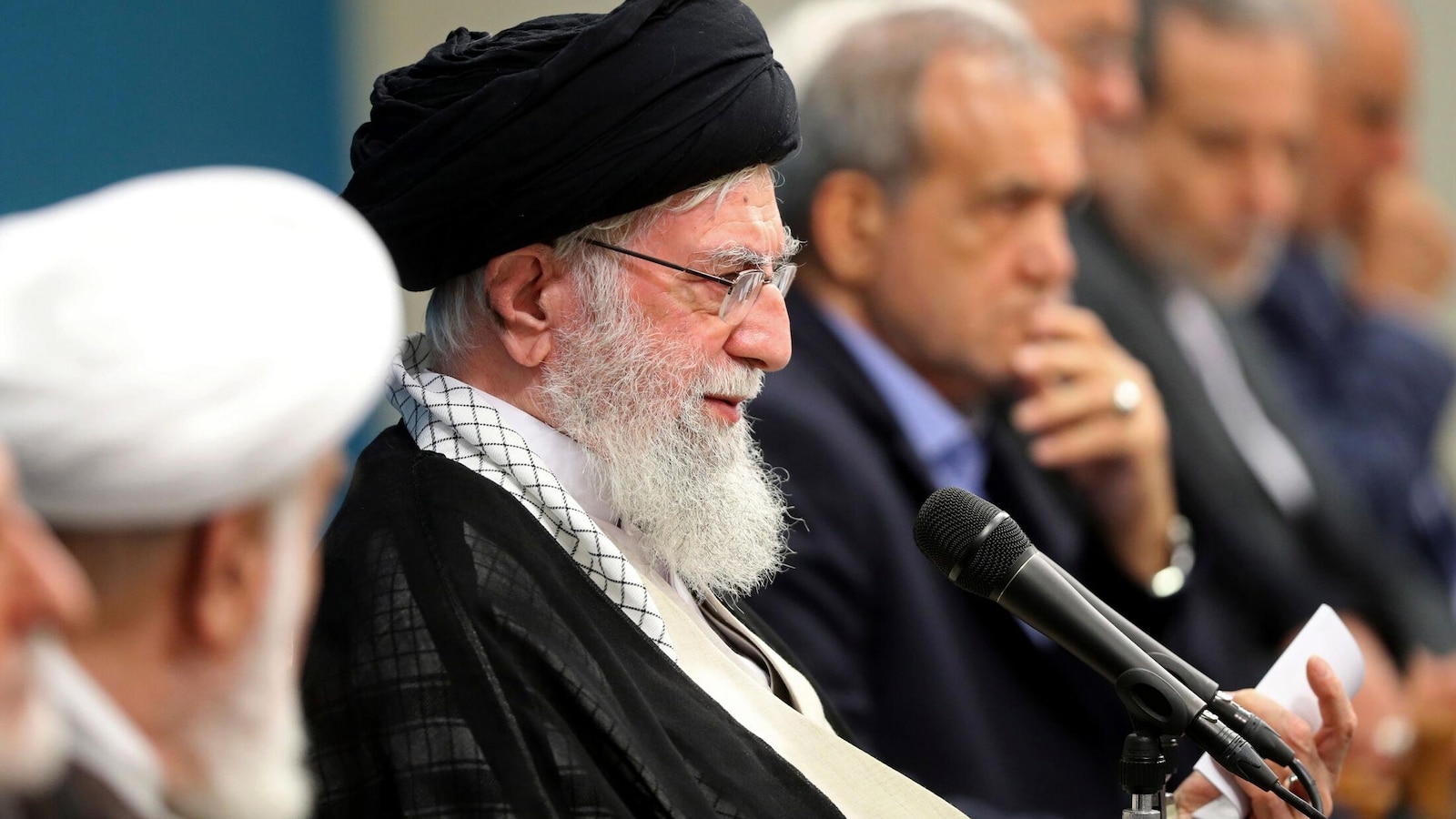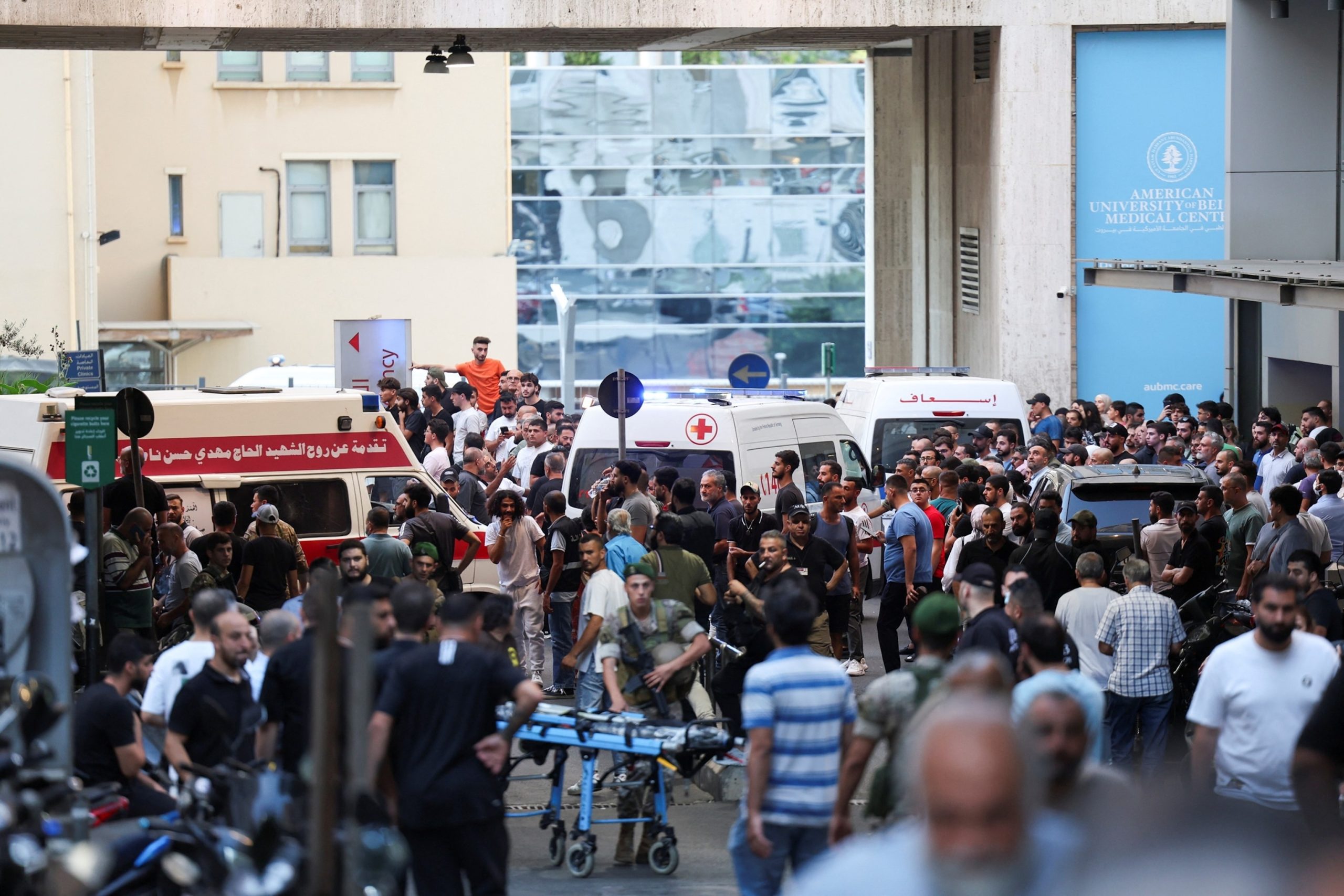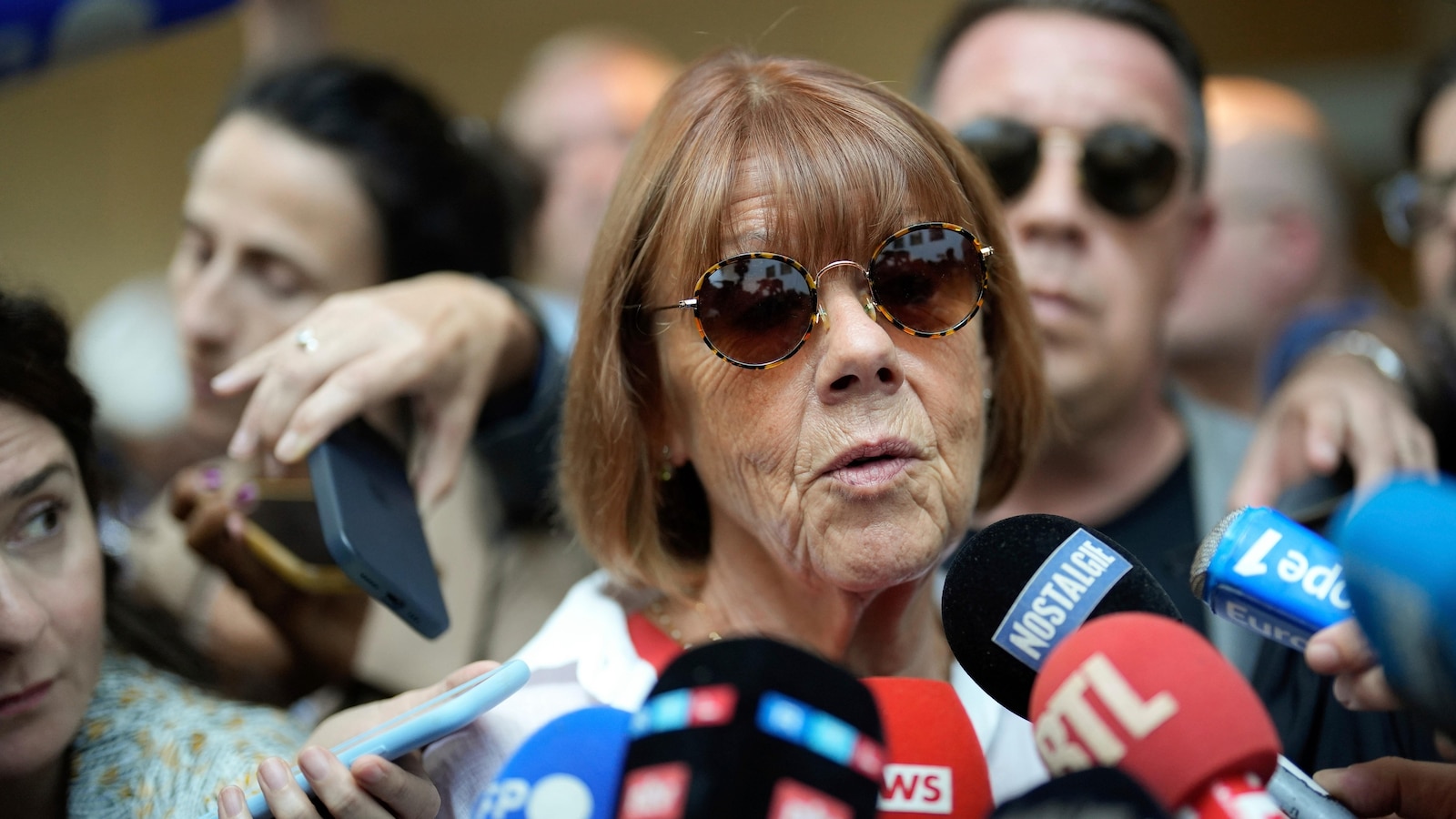
DUBAI, United Arab Emirates — Iran’s supreme leader opened the door Tuesday to renewed negotiations with the United States over his country’s rapidly advancing nuclear program, telling its civilian government there was “no harm” in engaging with its “enemy.”
Ayatollah Ali Khamenei’s remarks set clear red lines for any talks taking place under the government of reformist President Masoud Pezeshkian and renewed his warnings that Washington wasn’t to be trusted.
But his comments mirror those around the time of Iran’s 2015 nuclear deal with world powers, which saw Tehran’s nuclear program greatly curtailed in exchange for the lifting of economic sanctions. Yet it remains unclear just how much room Pezeshkian will have to maneuver, particularly as tensions remain high in the wider Middle East over the Israel-Hamas war and as the U.S. prepares for a presidential election in November.
“This does not mean that we cannot interact with the same enemy in certain situations,” Khamenei said, according to a transcript on his official website. “There is no harm in that, but do not place your hopes in them.”
Khamenei, who has the final say on all state matters, also warned Pezeshkian’s Cabinet, “Do not trust the enemy.”
Khamenei, 85, has occasionally urged talks or dismissed them with Washington after then-President Donald Trump unilaterally withdrew the United States from the deal in 2018.
There have been indirect talks between Iran and the U.S. in recent years mediated by Oman and Qatar, two of the United States’ Middle East interlocutors when it comes to Iran. Khamenei’s remarks came a day after Qatar’s prime minister visited the country.
Asked for comment, the U.S. State Department told The Associated Press: “We will judge Iran’s leadership by their actions, not their words.”
“We have long said that we ultimately view diplomacy as the best way to achieve an effective, sustainable solution with regard to Iran’s nuclear program,” it said. “However, we are far away from anything like that right now given Iran’s escalations across the board, including its nuclear escalations and its failure to cooperate” with the International Atomic Energy Agency, the United Nations nuclear watchdog.
“If Iran wants to demonstrate seriousness or a new approach, they should stop nuclear escalations and start meaningfully cooperating with the IAEA,” it said.
Since the deal’s collapse, Iran has abandoned all limits that the deal put on its program, and enriches uranium to up to 60% purity — near weapons-grade levels of 90%.
Surveillance cameras installed by the IAEA have been disrupted, while Iran has barred some of the Vienna-based agency’s most experienced inspectors. Iranian officials also have increasingly threatened that they could pursue atomic weapons.
Meanwhile, tensions between Iran and Israel have hit a new high during the Israel-Hamas war in the Gaza Strip. Tehran launched an unprecedented drone-and-missile attack on Israel in April after years of a shadow war between the two countries reached a climax with Israel’s apparent attack on an Iranian consular building in Syria that killed two Iranian generals and others.
The assassination in Tehran of Hamas leader Ismail Haniyeh also prompted Iran to threaten to retaliate against Israel.
Pezeshkian, a former lawmaker who won the presidency after a May helicopter crash killed hard-line President Ebrahim Raisi, campaigned in part on a promise to reengage the West with negotiations. Khamenei’s remarks as Iran’s paramount leader could provide him with the political cover to do so. Pezeshkian’s new foreign minister, Abbas Araghchi, was deeply involved in negotiations on the 2015 deal.
“After doing everything we can, a tactical retreat might sometimes be necessary, but we should not abandon our goals or opinions at the first sign of difficulty,” Khameini also said Tuesday, the second time in recent days he’s referred to a “tactical retreat” amid the tensions.
However, it’s not just Iran that’s facing a new presidency. The U.S. will hold a presidential election on Nov. 5, with Vice President Kamala Harris and Trump as the leading candidates. Iran has been concerned about Trump’s return to power.
While the U.S. engaged in indirect talks with Iran under President Joe Biden, it remains unclear how that would carry over to a possible Harris administration. Harris, in a speech to the Democratic National Convention last week, said: “I will never hesitate to take whatever action is necessary to defend our forces and our interests against Iran and Iran-backed terrorists.”
The RANE Network, a risk-intelligence firm, said if Harris wins, “the likelihood of a deal will rise as the Israel-Hamas war winds down.”
“Once negotiations begin, Iran will likely demand more protections regarding a potential U.S. withdrawal from a new deal after the United States walked away from the previous deal in 2018,” RANE said in an analysis Tuesday.
“Because of concerns about the sustainability of any new deal, Iran is also less likely to offer as many nuclear concessions, like the dismantling of more advanced centrifuges, since Iran would want to be able to spin up its nuclear program as fast as possible in the event of another U.S. exit from the new deal.”
Tuesday’s meeting between Khamenei and Pezeshkian’s Cabinet included an appearance by former Foreign Minister Mohammad Javad Zarif, who helped Iran reach the 2015 deal. After the meeting, Zarif said in an online message that he would continue to serve as a vice president in Pezeshkian’s administration after earlier publicly resigning over the makeup of the Cabinet.
___
Associated Press writer Nasser Karimi contributed to this report from Tehran, Iran.
After years of tension and hostility between the United States and Iran over the issue of Iran’s nuclear program, there seems to be a glimmer of hope for diplomacy. In a surprising turn of events, Iran has expressed its willingness to engage in negotiations with the US in order to address concerns about its nuclear activities.
Iran’s nuclear program has long been a source of contention in the international community, with many countries, including the US, expressing fears that Iran may be seeking to develop nuclear weapons. In response to these concerns, the US imposed strict sanctions on Iran in an effort to pressure the country into abandoning its nuclear ambitions.
However, recent statements from Iranian officials suggest that the country may be open to finding a diplomatic solution to the issue. Iranian President Hassan Rouhani recently stated that Iran is willing to negotiate with the US and other world powers in order to reach a mutually acceptable agreement on its nuclear program.
This shift in Iran’s stance towards negotiations comes at a critical time, as tensions between the US and Iran have escalated in recent years. The US withdrawal from the Iran nuclear deal in 2018 and the subsequent reimposition of sanctions have only served to further strain relations between the two countries.
Despite this history of animosity, there are signs that both sides may be willing to engage in dialogue. US President Joe Biden has expressed his willingness to rejoin the Iran nuclear deal, provided that Iran returns to compliance with its terms. This has opened the door for potential negotiations between the two countries.
While it remains to be seen whether these negotiations will ultimately lead to a resolution of the issue, the fact that Iran is now open to engaging in talks with the US is a positive development. Diplomacy and dialogue are always preferable to conflict and confrontation, and a negotiated solution to the issue of Iran’s nuclear program would be in the best interests of all parties involved.
It is important for both the US and Iran to approach these negotiations with an open mind and a willingness to compromise. By working together in good faith, it is possible that a mutually acceptable agreement can be reached that addresses the concerns of both sides and helps to ensure peace and stability in the region.


